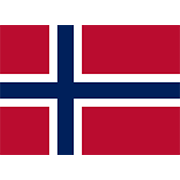Fiscal subject related
SAF-T Cash Register contains journal data from electronic cash register systems, such as sales transactions, payments, discounts, returns, corrections, and cancellations. The standard also requires digital signatures for transactions to ensure data integrity and authenticity. The standard is compatible with the SAF-T Financial format, which is used for exporting general ledger and customer and supplier data.
The main purpose of the SAF-T Cash Register Standard is to:
- Serve as an export format for cash register data after a request from the Norwegian Tax Administration or other parties.
- Serve as a format for moving data when changing cash register systems or software.
- Serve as a format for moving data from cash register systems to other financial systems, such as accounting software, tax computation systems, business intelligence software, etc.
The introduction of the standard format makes it easier for businesses to submit cash register data to public authorities when requested to do so. It will also be easier to perform internal audits and analyze and share data with others, such as external auditors or between different cash register systems. The obligation to store documents will become easier to fulfill because a SAF-T file meets the requirements for the storage of cash register data, as long as the file can show the specifications necessary for required reporting.
System suppliers must adjust their cash register systems so they support the new standard for customers who wish to use the system to produce and submit their cash register data in SAF-T format. The Norwegian Tax Administration provides documentation and guidance for implementing the SAF-T Cash Register standard. The documentation includes general information, technical descriptions of data elements with examples, diagrams, code lists, and XML schemes. This documentation can be found here.
Other news from Norway
TLv6 Implementation Marks Significant Shift in EU’s Trust List Format
A new EU Trust List format, TLv6, will officially replace TLv5 in May 2025 as part of the updated eIDAS Regulation (EU 2024/1183). It introduces key technical changes like a new URI field, updated signature format, and optional phone number support. Organizations must update their systems to avoid signature validation failures and service disruptions, as TLv5 will no longer be valid once TLv6 take... Read more



Goods exported from the Norwegian VAT Area are exempt from VAT.
 Norway
Author: Nikola Novković
Norway
Author: Nikola Novković
Norway has introduced new VAT exemption provisions for private firms exporting goods, requiring stricter documentation and digital signatures for compliance. The updated regulation mandates detailed transaction records, verified buyer identification, and proper export documentation, ensuring transparency and better VAT refund processing. To ensure better compliance with legal requirements and im... Read more



Navigating SAF-T: Differences Between Norway's and Denmark's Tax Reporting
 Norway
Author: Ivana Picajkić
Norway
Author: Ivana Picajkić
Norway and Denmark both use the Standard Audit File for Tax (SAF-T) but with different implementation approaches and requirements. Norway's SAF-T, mandatory since 2020, is submitted only upon request, while Denmark's SAF-T is part of ongoing digital bookkeeping obligations with set deadlines. Read more



Norway: Everything You Need to Know About the VAT System
 Norway
Author: Ivana Picajkić
Norway
Author: Ivana Picajkić
Norway requires businesses with annual revenue exceeding 50,000 NOK to register for VAT, with rates ranging from 25% for most goods to 0% for select services like newspapers and international transport. VAT returns are typically submitted bi-monthly, with strict invoicing requirements and potential penalties for non-compliance. Read more



Norway Launches Evaluation for Mandatory E-Invoicing and Digital Bookkeeping
 Norway
Author: Ivana Picajkić
Norway
Author: Ivana Picajkić
The Norwegian Ministry of Finance has launched an evaluation on implementing mandatory e-invoicing and digital bookkeeping, with initial proposals expected by June 2025. This initiative aims to enhance efficiency, align with EU standards, and potentially save businesses over NOK 5 billion annually by adopting a framework similar to Denmark’s system. The Norwegian Ministry of Finance has initiated... Read more



Understanding the Importance and Benefits of E-Invoicing in Norway
 Norway
Author: Ivana Picajkić
Norway
Author: Ivana Picajkić
E-invoicing is a key element of Norway’s digital transformation, enhancing efficiency, transparency, and compliance across B2B, B2G, and B2C transactions. It is mandatory for all suppliers to public sector entities, requiring adherence to Norwegian standards and use of formats like EHF and Peppol BIS Billing 3.0. Read more



Reminder: Norway Announced New VAT Rates for 2025
 Norway
Author: Ivana Picajkić
Norway
Author: Ivana Picajkić
Norway has announced updated VAT rates effective January 1, 2025, including a standard rate of 25% and reduced rates of 15%, 12%, and 11.11% for specific goods and services. These changes aim to align tax policy with economic objectives and sector-specific support. The Norwegian Official Gazette announced the VAT rates for 2025, which will take effect on January 1, 2025. The standard VAT rate is... Read more


